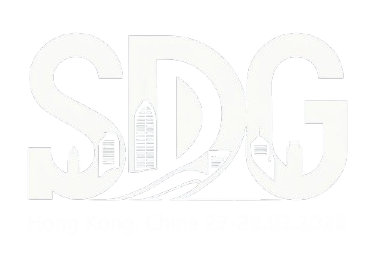Call for Papers
Download the PDF version of CFP
I. Background
To promote academic collaboration and strengthen peer networks among emerging scholars, four leading Asian institutions—the School of Communication at Hong Kong Baptist University, the School of Media and Communication at Shanghai Jiao Tong University, the Institute of Communication Studies at Yang Ming Chiao Tung University, and the Department of Communications and New Media at the National University of Singapore—have jointly established a four-year rotational system for hosting this symposium. Each year, one institution takes the lead in organizing the event, providing faculty and students with valuable opportunities to present their latest research and receive constructive feedback. The symposium also welcomes external submissions and features keynote addresses by renowned international scholars and industry professionals.
Through this collaborative initiative, we aspire to bring together scholars, industry experts, and graduate students to engage in dialogue on pressing societal challenges, fostering discussions that drive knowledge dissemination and support sustainable social development.
II. Conference Theme
Amid rapid technological change and global challenges, the United Nations’ Sustainable Development Goals (SDGs) offer a comprehensive roadmap for tackling some of society’s most pressing issues, including the promotion of well-being, climate action, and responsible consumption and production. With 17 core objectives, the SDGs aim to build a more sustainable and inclusive future for all by 2030.
Specifically, these objectives focus on:
| • No Poverty | • Zero Hunger |
| • Good Health and Well-being | • Quality Education |
| • Gender Equality | • Clean Water and Sanitation |
| • Affordable and Clean Energy | • Decent Work and Economic Growth |
| • Industry, Innovation, and Infrastructure | • Reduced Inequalities |
| • Sustainable Cities and Communities | • Responsible Consumption and Production |
| • Climate Action | • Life Below Water |
| • Life on Land | • Peace, Justice, and Strong Institutions |
| • Partnerships for the Goals |
Emerging media—including artificial intelligence, digital platforms, immersive technologies, and social media—plays a pivotal role in realizing these objectives. By democratizing access to information, fostering cross-sector collaboration, and amplifying marginalized voices, innovative communication technologies empower communities and accelerate progress toward sustainability. However, these technologies also present inherent and structural limitations that require careful examination.
In this spirit, we invite submissions for papers that explore both the transformative potential and limitations of emerging media in advancing and achieving at least one SDG initiative. Topics may include, but are not limited to, the following areas:
- How emerging media and new communication technologies reflect and represent the current state of SDGs at the individual or societal level.
- How emerging media and new communication technologies influence the knowledge and implementation of SDGs at the individual or societal level.
- How governments, businesses, or organizations design and use emerging media and new communication technologies to advance SDGs.
- New paradigms of intelligent media ecosystems and human-machine collaboration in SDG communication.
- Other issues related to emerging media, new communication technologies, and their role in supporting the SDGs.
III. Best Student Paper Award
We are pleased to announce a Best Student Paper Competition as part of this conference. Submissions with a student as the first author will be eligible, provided the work reflects the student’s primary contribution. To be considered, please indicate eligibility during the submission process. The winner will receive a certificate at the symposium.
III. Submission Instructions
- Only full-length paper and extended abstract submissions will be considered for acceptance.
- Submissions must be original research work that has not been accepted or published by any other academic conference or journal.
- Language: Chinese (Simplified or Traditional) or English.
- Word Limit:
- Extended abstract: Chinese abstracts should be between 1,200 and 2,400 words, while English abstracts should range from 850 to 1,500 words. References are not included in the word count.
- Full-length article: Chinese manuscripts, including the abstract and references, should not exceed 15,000 words. English manuscripts, including the abstract and references, should not exceed 9,000 words.
- Citation Format: For Chinese submissions, please refer to the format of the journal, Communication and Society; for English submissions, please refer to the APA 7th format.
- Please provide up to , including relevant SDG objectives addressed in the paper, and the total word count at the end of the file.
- Submissions should be in PDF or WORD format.
- Submission site: https://www.scholarbay.cn/activityDetail?id=16
IV. Publishing Plan
Authors with high-quality submissions will be invited to revise or expand their work into full-length research articles for consideration of publishing in Communication and Society, Emerging Media, or as a chapter in a designated edited book.
V. Important Dates
- 1 December 2025 – Submission system opens
- 31 January 2026 – Submission deadline
- 28 February 2026 – Notification of acceptance
- 27-28 March 2026 – EMCSDG Hong Kong 2026 Symposium
- 29 March 2026 – Guided cultural tours
VI. Other Information
No registration fee is required.
For any submission-related inquiries, please contact Ms. Yajing Lu at hkbusdgs2026@gmail.com.
